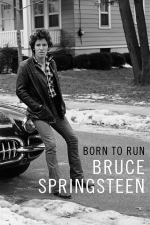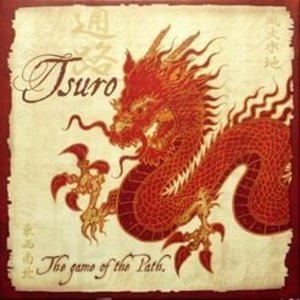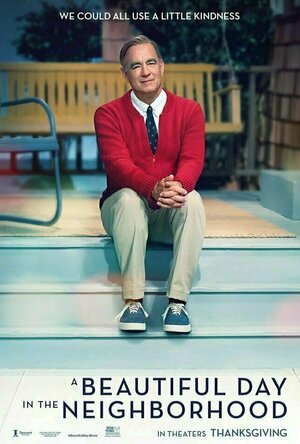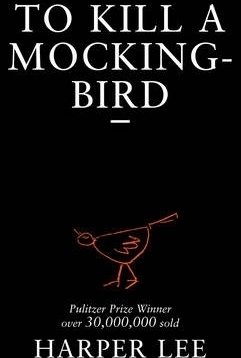Search

Born to Run
Book
"Writing about yourself is a funny business...But in a project like this, the writer has made one...

Tsuro
Tabletop Game
From the publisher: A beautiful and beautifully simple game of laying a tile before your own...
Boardgames AbstractGames
Neon's Nerd Nexus (360 KP) rated A Beautiful Day in the Neighborhood (2019) in Movies
Feb 2, 2020 (Updated Feb 2, 2020)
Hello Neighbor
A Beautiful Day In The Neighborhood is an inspiring and delightful film about a man that was oh so smart and oh so pleasant. I just want to say from the start what an absolute joy this film was to watch, there was something so warm and wonderful there constantly that kept my full attention the entire time and when it ended I almost felt sad there wasnt more of it. Tom Hanks plays Fred Rogers aka Mr Rogers as hes known by most. An intriguing man who is almost investigated/interrogated by writer Lloyd Voge who has many troubles of his own. Hanks transforms seamlessly into Rogers with all his mannerisms replicated flawlessly even down to whats going on behined his eyes. Rogers may seem like theres something more sinister behined him at times but truth is he had a troubled past too and while maybe not a war veteran its almost as if you can see signs of depression or ptsd behined those eyes from the way he was treated in his youth of from the general weight of his job. But its the way the way hes learnt to deal with his anger, frustrations and demons thats so fascinating and how he manages to keep stong/humble so he can teach other children to overcome the harshness of life and the dark times they may face ahead of them thats trully inspiring and commendable. Llyods transformation during the film is also depicted amazingly too, hes so troubled hes almost beyond help, struggling with such emotions as grief, hatred and stress hes seemingly stuck on an ever declining path of sadness. That is until he meets rogers and the on screen interactions between these two are the absolute bread and butter to watch here as rogers uses his philosophy and good nature to help him find happiness in himself once again. See the thing is adults tend to dismiss anything they consider 'childish' but more often than not these so called childish things they dismiss contain more answers, escapism and advise for our problems than anything else be it by nostalgia, wisdom or philosophy or simple innocence. I loved how the tv show scenes felt so nostalgic that you could swear they were filmed way back in the past and the choice to use a different aspect ratio for them was smart. Its odd to say but theres definitely a subbtle element of horror and creepiness I found here too especially with some of the almost fever dream type scenes which worked extreamly well and broke up the film nicely. Lastly I would say if you are planning to see this be prepared to cry as its not only incredibly heartfelt it also constantly deals with very depressing subject matter too. So many times I found It depicted problems, situations, feelings and nostalgia to things that I have faced in my own life leading to me to tear up like it was speaking specifically to only me as I questioned my own life, feelings, relationships and decisions in my head. A splendid film that teaches us how life is to short to waste time on anger/hate and that we should instead spend and cherish the time we have here with the ones we love before its to late.
Kayleigh (12 KP) rated To Kill a Mockingbird in Books
Jan 2, 2019
Well, February is definitely the month for discovering classics I’ve missed! For some reason, I’d always classed To Kill a Mockingbird in amongst the Agatha Christie genre of murder mysteries – not that I’ve read those either – and didn’t know enough about it for it to have piqued my interest. Now I’ve read it though, I can see what all the fuss is about, and it’s not surprising that, despite being published in 1960, it was still the <a href="http://www.guardian.co.uk/news/datablog/2012/aug/09/best-selling-books-all-time-fifty-shades-grey-compare">65th best-selling book of all time</a> in 2012. Beware of spoilers!
The story is set in Maycomb, Alabama in the 1930s, and is written from the perspective of Jean Louise ‘Scout’ Finch, who is between six and eight years old as the story progresses. The start of the book does an effective job of introducing us to all the characters. Scout lives with her widowed father, Atticus, a lawyer, her brother Jem (who is 4 years older than her) and Calpurnia, a black woman who acts as a type of mother figure. A friend, Dill, also joins them in the summer. The three children are intrigued by Arthur ‘Boo’ Radley, who lives in the house on the corner but is never seen outside. I really enjoyed this part of the story; it set the scene brilliantly, as well as helping me reminisce about my own childhood. Even if there is no ‘haunted’ house, children will always make one – at least, my brother and I did! With the limitless amounts of imagination children have, there will always be adventures to be had and ‘monsters’ to escape from. There was one particular house, when we were around the same age as Jem and Scout, where they had a doorbell you pulled, like a cord. My brother Josh said it was a doorbell that made you scream every time you pulled it, so we obviously had great fun in pulling it, screaming, and running away. If by some fluke the person living there is reading this, I’m really sorry, but it still makes me laugh! There was also every Christmas, when we went carol singing. We had decided that the houses beyond the wood were richer than the others, and every year would link arms, lighting matches to try and find our way in the dark and telling ghost stories the whole time.
Once everything has been established, the book moves on to a case Atticus is defending. A black man, Tom, has been accused of raping Mayella Ewell, part of a trashy white family with very poor education and even less money. This is where the casual prejudice of the time is evident – Jem and Scout have to put up with people calling their family a “nigger-lover” (sorry if that language offends, it is a direct quote and I mean no harm); Atticus faces repercussions for his whole-hearted attempt to save Tom; and many of the Maycomb women look down on the black community. However, there’s still a touch of hope – the way Atticus defends Tom’s case makes everybody think, a great feat in the setting where black and white people are in completely different classes. In this part of the story, I really looked up to Atticus, in his seemingly-infinite wisdom.
In the final part of the story, Jem and Scout finally get to meet Boo Radley, and it is here that the title of the book becomes apparent. In the middle of the book, after Jem and Scout get air-rifles, it is said:
<blockquote>When he gave us our air-rifles Atticus wouldn’t teach us to shoot. Uncle Jack instructed us in the rudiments thereof; he said Atticus wasn’t interested in guns. Atticus said to Jem one day, “I’d rather you shoot at tin cans in the back yard, but I know you’ll go after birds. Shoot all the bluejays you want, if you can hit ‘em, but remember it’s a sin to kill a mockingbird.”
That was the only time I ever heard Atticus say it was a sin to do something, and I asked Miss Maudie about it.
“Your father’s right,” she said. “Mockingbirds don’t do one thing but make music for us to enjoy. They don’t eat up people’s gardens, don’t nest in corncribs, they don’t do one thing but sing their hearts out for us. That’s why it’s a sin to kill a mockingbird.”</blockquote>
Obviously, not knowing what was coming, I thought the story must eventually be about the children shooting a mockingbird. The last page of the book, though, I realised that it was a lot more subtle and symbolic than that. The mockingjay is Boo Radley, the man who gives when he can and causes no harm.
I really wish I’d read this story as a child, to see what sort of perspective I’d have had back then. Reading as an adult means that, while Scout was a brilliant perspective, I was almost reading as an outsider. I could see her maturing, slowly fitting the pieces together to start acting like an adult, but at the same time it was an undeniably adult reading. I really really enjoyed the book, but I have a feeling it’s one of those multi-faceted ones where you read something different every time. I can’t help thinking that reading it as a child would have been a lot more powerful.
This review is also on my <a href="http://awowords.wordpress.com">blog</a>; - if you liked it, please check it out!
The story is set in Maycomb, Alabama in the 1930s, and is written from the perspective of Jean Louise ‘Scout’ Finch, who is between six and eight years old as the story progresses. The start of the book does an effective job of introducing us to all the characters. Scout lives with her widowed father, Atticus, a lawyer, her brother Jem (who is 4 years older than her) and Calpurnia, a black woman who acts as a type of mother figure. A friend, Dill, also joins them in the summer. The three children are intrigued by Arthur ‘Boo’ Radley, who lives in the house on the corner but is never seen outside. I really enjoyed this part of the story; it set the scene brilliantly, as well as helping me reminisce about my own childhood. Even if there is no ‘haunted’ house, children will always make one – at least, my brother and I did! With the limitless amounts of imagination children have, there will always be adventures to be had and ‘monsters’ to escape from. There was one particular house, when we were around the same age as Jem and Scout, where they had a doorbell you pulled, like a cord. My brother Josh said it was a doorbell that made you scream every time you pulled it, so we obviously had great fun in pulling it, screaming, and running away. If by some fluke the person living there is reading this, I’m really sorry, but it still makes me laugh! There was also every Christmas, when we went carol singing. We had decided that the houses beyond the wood were richer than the others, and every year would link arms, lighting matches to try and find our way in the dark and telling ghost stories the whole time.
Once everything has been established, the book moves on to a case Atticus is defending. A black man, Tom, has been accused of raping Mayella Ewell, part of a trashy white family with very poor education and even less money. This is where the casual prejudice of the time is evident – Jem and Scout have to put up with people calling their family a “nigger-lover” (sorry if that language offends, it is a direct quote and I mean no harm); Atticus faces repercussions for his whole-hearted attempt to save Tom; and many of the Maycomb women look down on the black community. However, there’s still a touch of hope – the way Atticus defends Tom’s case makes everybody think, a great feat in the setting where black and white people are in completely different classes. In this part of the story, I really looked up to Atticus, in his seemingly-infinite wisdom.
In the final part of the story, Jem and Scout finally get to meet Boo Radley, and it is here that the title of the book becomes apparent. In the middle of the book, after Jem and Scout get air-rifles, it is said:
<blockquote>When he gave us our air-rifles Atticus wouldn’t teach us to shoot. Uncle Jack instructed us in the rudiments thereof; he said Atticus wasn’t interested in guns. Atticus said to Jem one day, “I’d rather you shoot at tin cans in the back yard, but I know you’ll go after birds. Shoot all the bluejays you want, if you can hit ‘em, but remember it’s a sin to kill a mockingbird.”
That was the only time I ever heard Atticus say it was a sin to do something, and I asked Miss Maudie about it.
“Your father’s right,” she said. “Mockingbirds don’t do one thing but make music for us to enjoy. They don’t eat up people’s gardens, don’t nest in corncribs, they don’t do one thing but sing their hearts out for us. That’s why it’s a sin to kill a mockingbird.”</blockquote>
Obviously, not knowing what was coming, I thought the story must eventually be about the children shooting a mockingbird. The last page of the book, though, I realised that it was a lot more subtle and symbolic than that. The mockingjay is Boo Radley, the man who gives when he can and causes no harm.
I really wish I’d read this story as a child, to see what sort of perspective I’d have had back then. Reading as an adult means that, while Scout was a brilliant perspective, I was almost reading as an outsider. I could see her maturing, slowly fitting the pieces together to start acting like an adult, but at the same time it was an undeniably adult reading. I really really enjoyed the book, but I have a feeling it’s one of those multi-faceted ones where you read something different every time. I can’t help thinking that reading it as a child would have been a lot more powerful.
This review is also on my <a href="http://awowords.wordpress.com">blog</a>; - if you liked it, please check it out!

